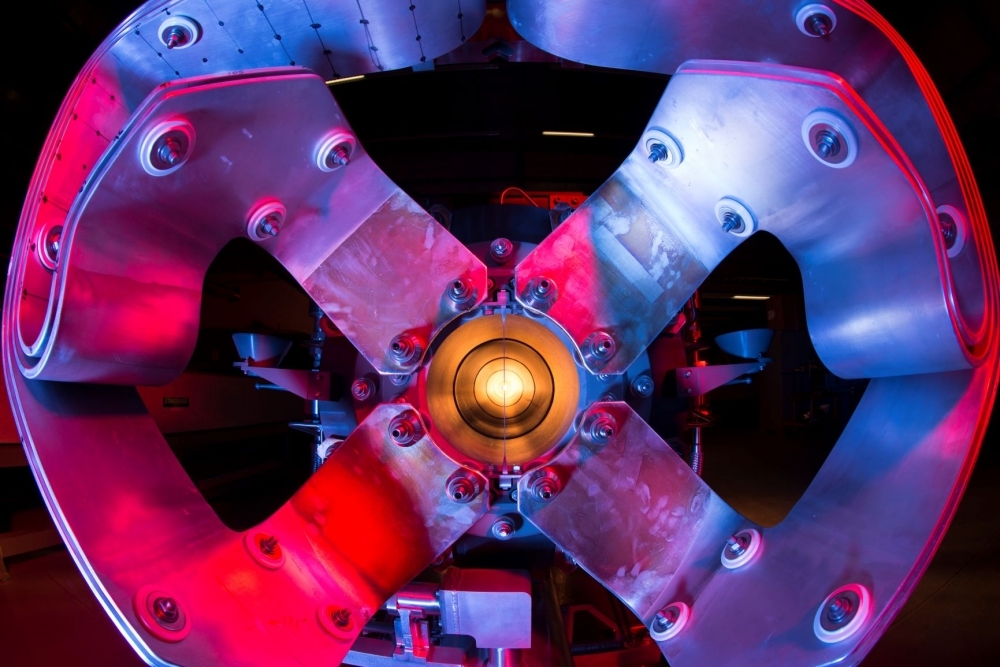

The purpose of the agreement is to promote and deepen scientific and technological cooperation between researchers from São Paulo and the US Department of Energy’s high-energy physics laboratory (photo: Fermilab)
The purpose of the agreement is to promote and deepen scientific and technological cooperation between researchers from São Paulo and the US Department of Energy’s high-energy physics laboratory.
The purpose of the agreement is to promote and deepen scientific and technological cooperation between researchers from São Paulo and the US Department of Energy’s high-energy physics laboratory.

The purpose of the agreement is to promote and deepen scientific and technological cooperation between researchers from São Paulo and the US Department of Energy’s high-energy physics laboratory (photo: Fermilab)
By Elton Alisson | Agência FAPESP – FAPESP has signed a memorandum of understanding with the Fermi National Accelerator Laboratory (Fermilab), a US Department of Energy national laboratory specializing in high-energy particle physics.
The purpose of the agreement is to promote and deepen scientific and technological cooperation between researchers from the state of São Paulo and Fermilab in high-energy physics, including neutrino research. Neutrinos are subatomic particles with very little mass that travel at near light speed.
The FAPESP-Fermilab collaboration may include exchanging faculty, researchers and graduate students, conducting collaborative research, and holding workshops, joint lectures, symposia and meetings, among other forms of cooperation.
“The agreement will open up opportunities for young researchers of any nationality to begin their careers at São Paulo’s universities, working on advanced topics relating to experimental neutrino physics at DUNE [Deep Underground Neutrino Experiment], which will continue to be led by Fermilab,” said Carlos Henrique de Brito Cruz, FAPESP’s Scientific Director.
Construction on DUNE is scheduled to begin in 2021. One of DUNE’s aims will be to discover new properties of neutrinos. To this end, a particle accelerator will fire a powerful beam of neutrinos from Fermilab in Batavia near Chicago at a detector 1,300 km away in Lead, South Dakota. The detector, filled with 70,000 tons of liquid argon and located 1.5 km underground, will capture neutrino interactions, including each photon (quantum of light) that is released, providing clues about the evolution of the Universe.
In a project supported by FAPESP, physicists Ettore Segreto and Ana Amelia Bergamini Machado, both professors at the University of Campinas’s Gleb Wataghin Institute of Physics (IF-UNICAMP) in the state of São Paulo, have developed a novel photon detection technology for DUNE.
Called ARAPUCA – a loanword found in Brazil, of Tupi origin, meaning “bird trap” – the device will trap very low-frequency particles of light coming from DUNE’s detectors.
“The photon detection system developed by UNICAMP’s researchers has been highly successful,” said Nigel Lockyer, Director of Fermilab. “São Paulo has brought plenty of talented people with cutting-edge engineering knowledge to contribute to our challenging projects. FAPESP has been a major partner in building our relationship with the Latin American science and engineering community.”
Expanding the partnership
The agreement between FAPESP and Fermilab was signed during the Fifth Meeting of the Brazil-US Joint Commission on Science and Technology Cooperation, which was held on March 6, 2020, at the Ministry of Foreign Affairs in Brasília.
On the same occasion, UNICAMP and Fermilab signed an agreement to cooperate on infrastructure research and development for DUNE’s Long-Baseline Neutrino Facility (LBNF), particularly on cryostats to house the detector and cryogenics to keep the liquid argon at minus 184 °C.
DUNE’s cryogenic equipment will include a nitrogen cooling system, piping, pumps, and other systems needed to fill the cryostats, keep them cold, and circulate and purify the argon.
UNICAMP’s researchers are already contributing to the LBNF by conducting studies and tests on argon recirculation, purification, regeneration and condensation to ensure that the necessary components comply with specifications.
The new agreement means that they can now effectively design and supply systems that do all of this (purify, regenerate, circulate and condensate liquid argon).
“The University of Campinas is very proud of this important agreement with Fermilab, which strengthens our long-term relationship in basic research and specifically in neutrino physics,” said Marcelo Knobel, Rector of UNICAMP.
“We hope to help build this world-class facility and address the significant engineering challenges it presents. We firmly believe that together, we will contribute to the advancement of science and technology.”
Republish
The Agency FAPESP licenses news via Creative Commons (CC-BY-NC-ND) so that they can be republished free of charge and in a simple way by other digital or printed vehicles. Agência FAPESP must be credited as the source of the content being republished and the name of the reporter (if any) must be attributed. Using the HMTL button below allows compliance with these rules, detailed in Digital Republishing Policy FAPESP.





